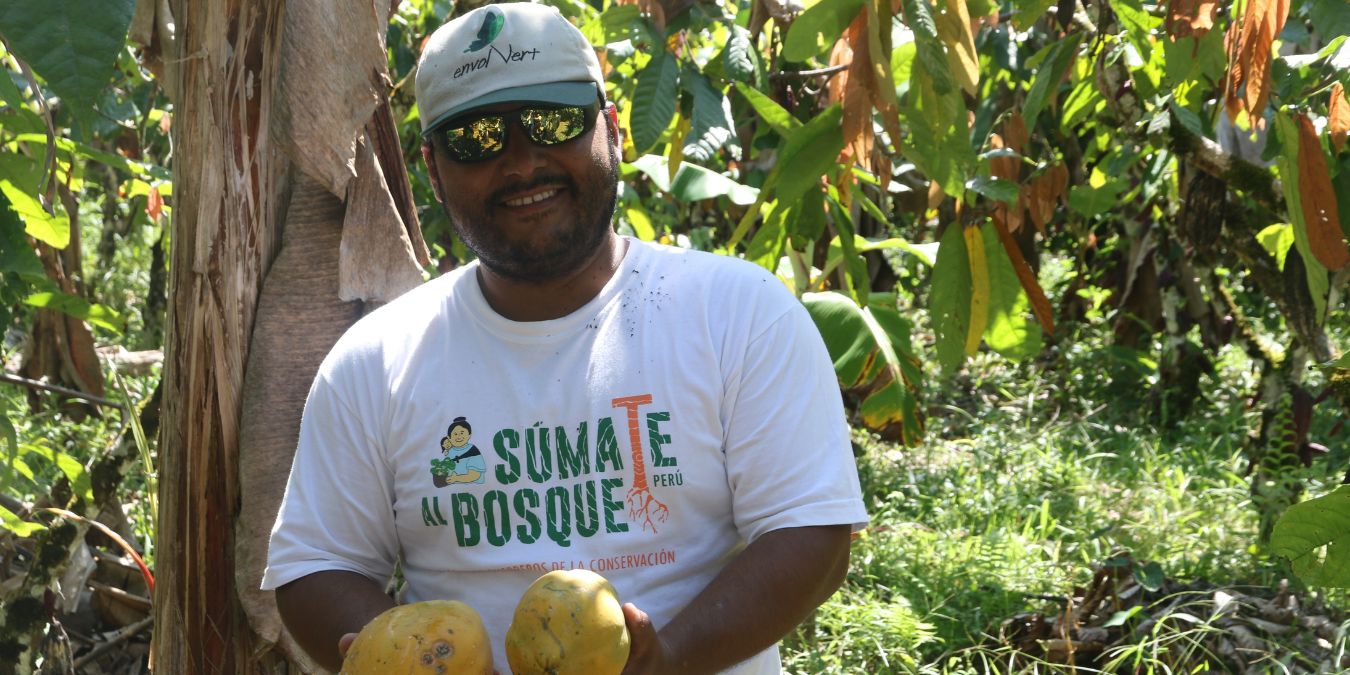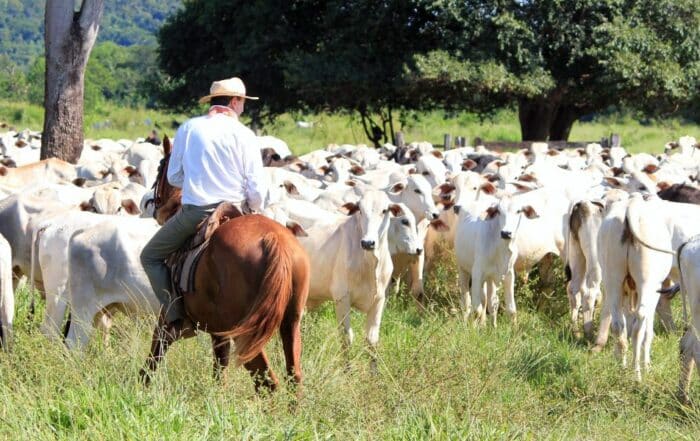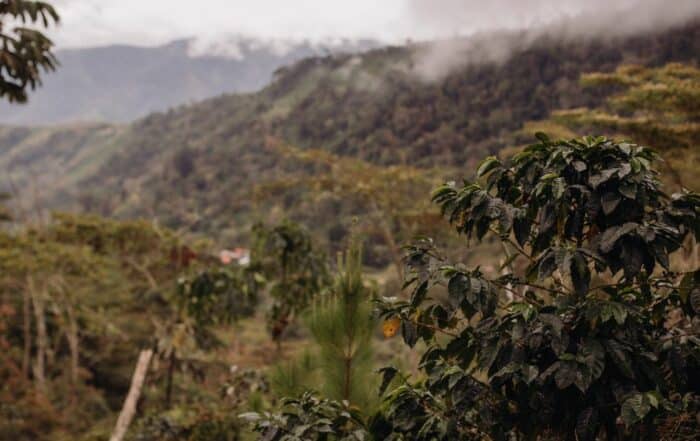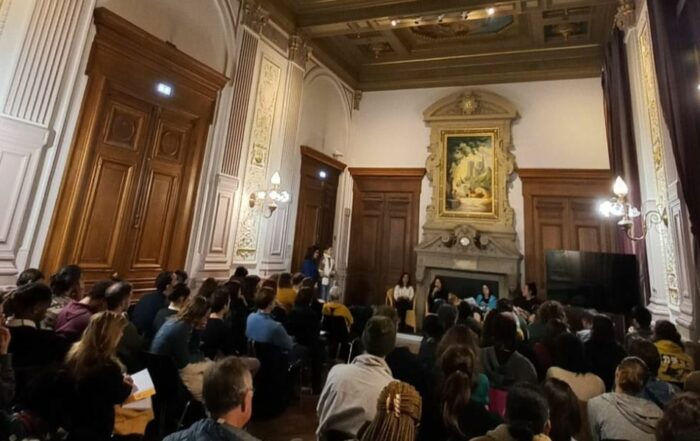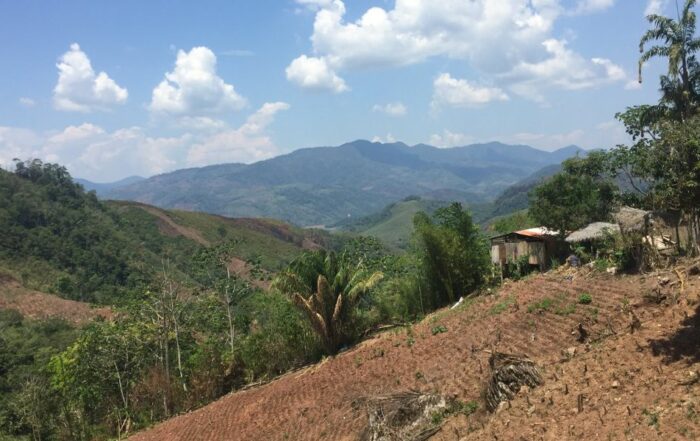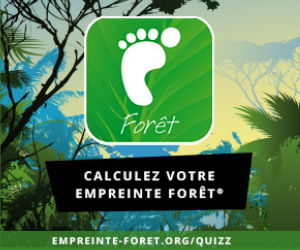What is your position at Envol Vert in Tingo Maria?
I’m currently in charge of the Tingo Maria area for conservation, agroforestry and the development of economic alternatives activities at Envol Vert.
What do you enjoy most about your work?
I’m passionate about initiating the transition to community-based work focused on sustainability and non-assistance. I enjoy working to raise awareness in improving the use of our natural resources and mitigating climate change for future generations in my trainings, this is what I enjoy most about working at Envol Vert in Tingo Maria.
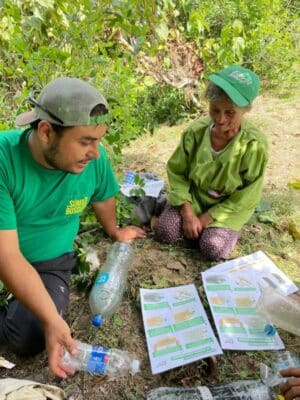
What are the benefits of forest conservation and the development of economic alternatives such as honey production from native bees?
The benefits of forest conservation and the development of economic alternatives such as honey production from native bees are diverse and significant. Forest conservation protects biodiversity, regulates water and climate, mitigates climate change, provides renewable resources and promotes sustainable tourism. On the other hand, the development of economic alternatives such as honey production from native bees strengthens conservation by creating sustainable income for local communities, reducing dependence on harmful activities and promoting responsible land use and forest management practices. This preserves biodiversity, improves communities’ quality of life and contributes to long-term environmental balance.
What are the main obstacles to forest conservation in Peru?
The main obstacles to forest conservation in Peru are illegal deforestation, uncontrolled agricultural expansion, illegal mining that damages forests, lack of environmental law enforcement, the impact of climate change on forests, and demographic pressure that increases demand for natural resources. These challenges require comprehensive approaches that focus not only on direct forest protection, but also on the sustainable management of natural resources and the strengthening of environmental governance in Peru.
What do you think of Envol Vert’s action to mitigate climate change?
I find Envol Vert’s action to mitigate climate change exceptional and important. The organization demonstrates a commendable commitment to environmental protection through concrete and effective strategies. Focusing on forest conservation, sustainable rural development and public awareness, Envol Vert addresses key climate change issues such as preserving biodiversity and promoting sustainable practices. Its holistic approach and willingness to work hand-in-hand with local communities testify to a vision that is genuinely committed to tackling one of the most important challenges of our time.
What is your position at Envol Vert in Tingo Maria?
I’m currently in charge of the Tingo Maria area for conservation, agroforestry and the development of economic alternatives activities at Envol Vert.
What do you enjoy most about your work?
I’m passionate about initiating the transition to community-based work focused on sustainability and non-assistance. I enjoy working to raise awareness in improving the use of our natural resources and mitigating climate change for future generations in my trainings, this is what I enjoy most about working at Envol Vert in Tingo Maria.

What are the benefits of forest conservation and the development of economic alternatives such as honey production from native bees?
The benefits of forest conservation and the development of economic alternatives such as honey production from native bees are diverse and significant. Forest conservation protects biodiversity, regulates water and climate, mitigates climate change, provides renewable resources and promotes sustainable tourism. On the other hand, the development of economic alternatives such as honey production from native bees strengthens conservation by creating sustainable income for local communities, reducing dependence on harmful activities and promoting responsible land use and forest management practices. This preserves biodiversity, improves communities’ quality of life and contributes to long-term environmental balance.
What are the main obstacles to forest conservation in Peru?
The main obstacles to forest conservation in Peru are illegal deforestation, uncontrolled agricultural expansion, illegal mining that damages forests, lack of environmental law enforcement, the impact of climate change on forests, and demographic pressure that increases demand for natural resources. These challenges require comprehensive approaches that focus not only on direct forest protection, but also on the sustainable management of natural resources and the strengthening of environmental governance in Peru.
What do you think of Envol Vert’s action to mitigate climate change?
I find Envol Vert’s action to mitigate climate change exceptional and important. The organization demonstrates a commendable commitment to environmental protection through concrete and effective strategies. Focusing on forest conservation, sustainable rural development and public awareness, Envol Vert addresses key climate change issues such as preserving biodiversity and promoting sustainable practices. Its holistic approach and willingness to work hand-in-hand with local communities testify to a vision that is genuinely committed to tackling one of the most important challenges of our time.

